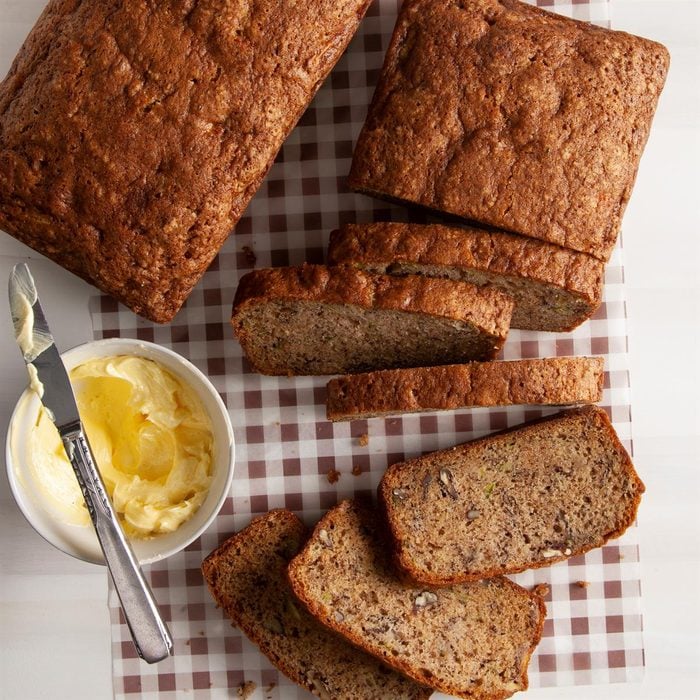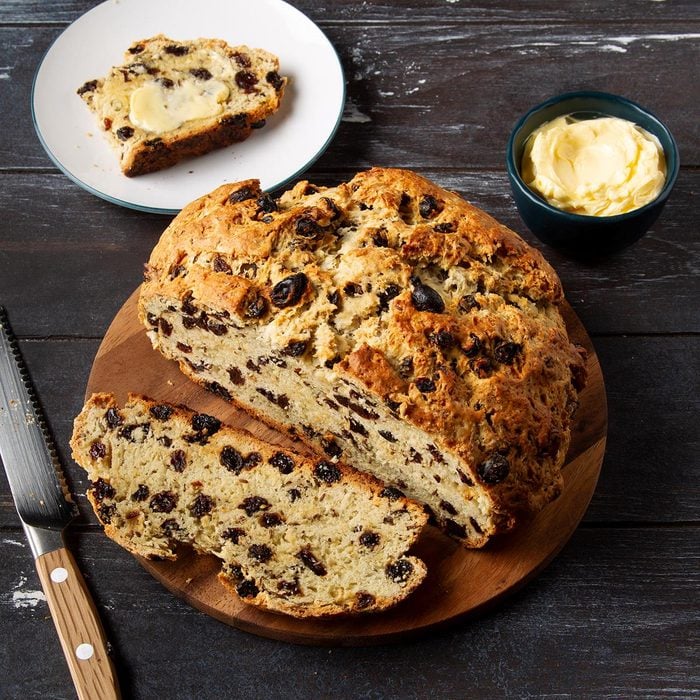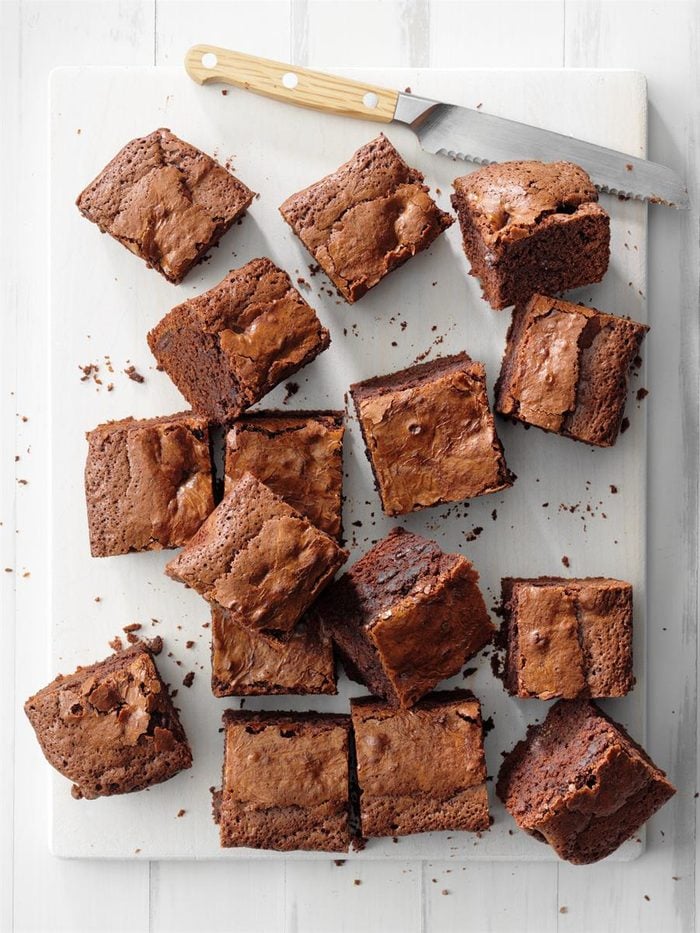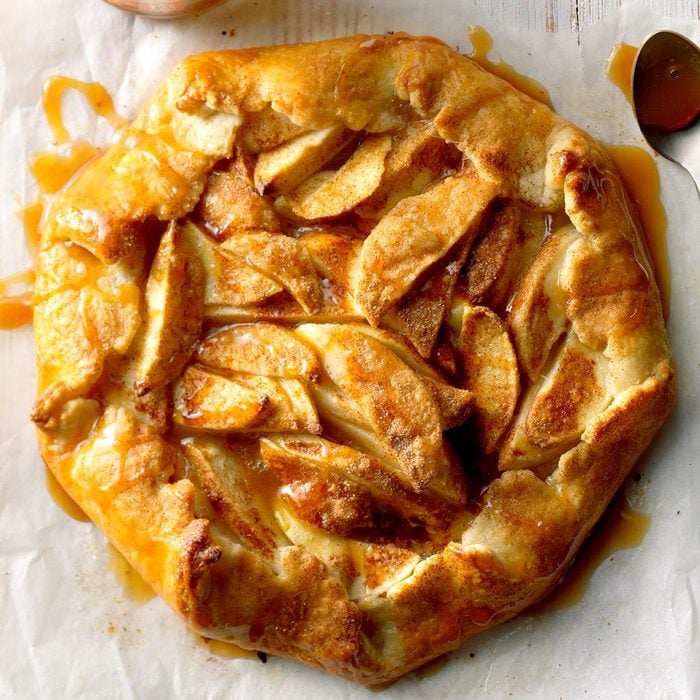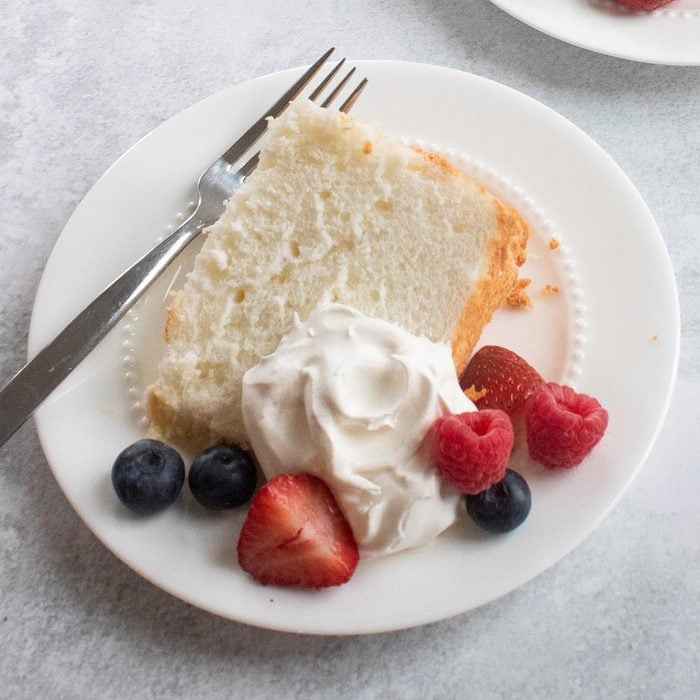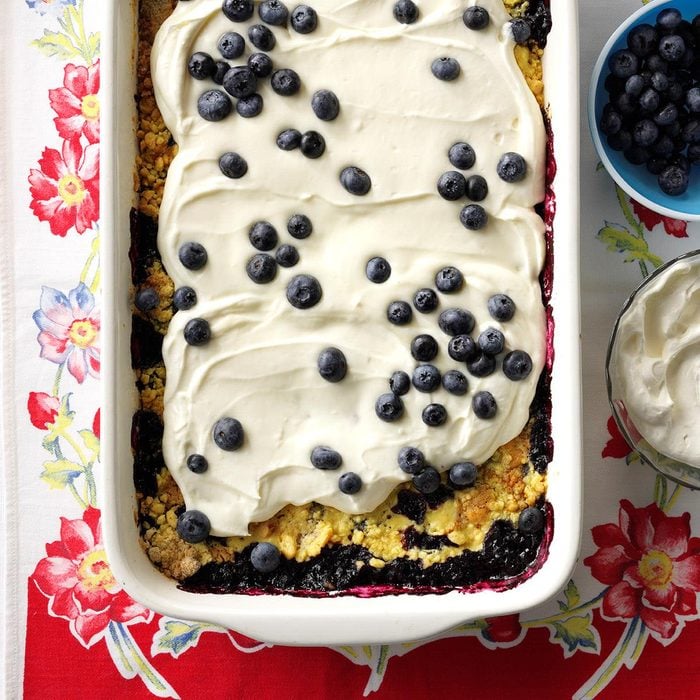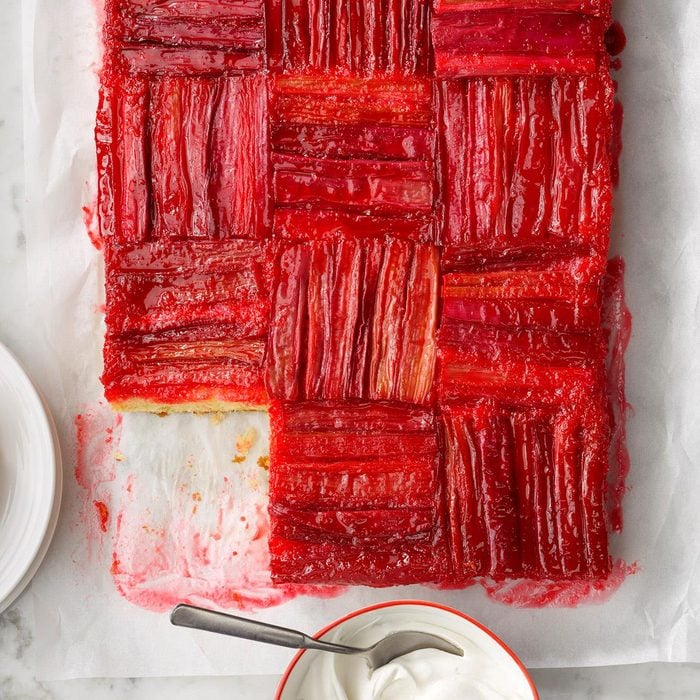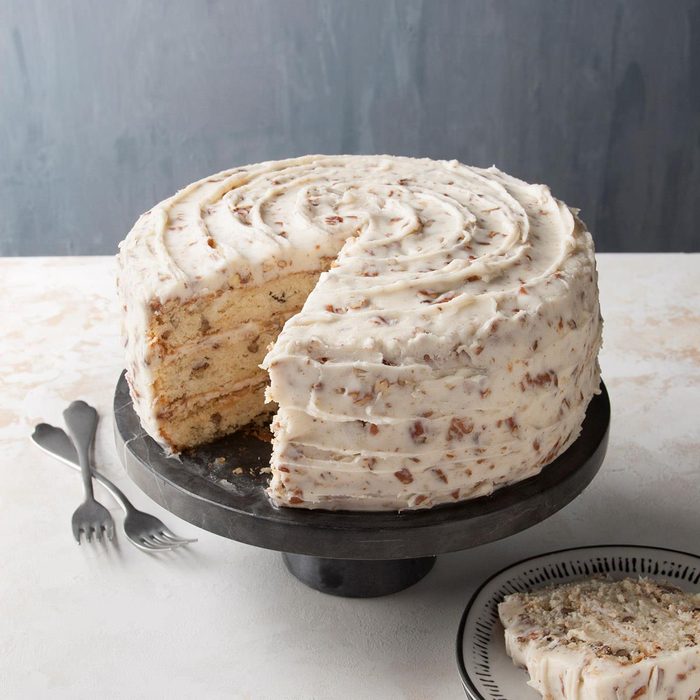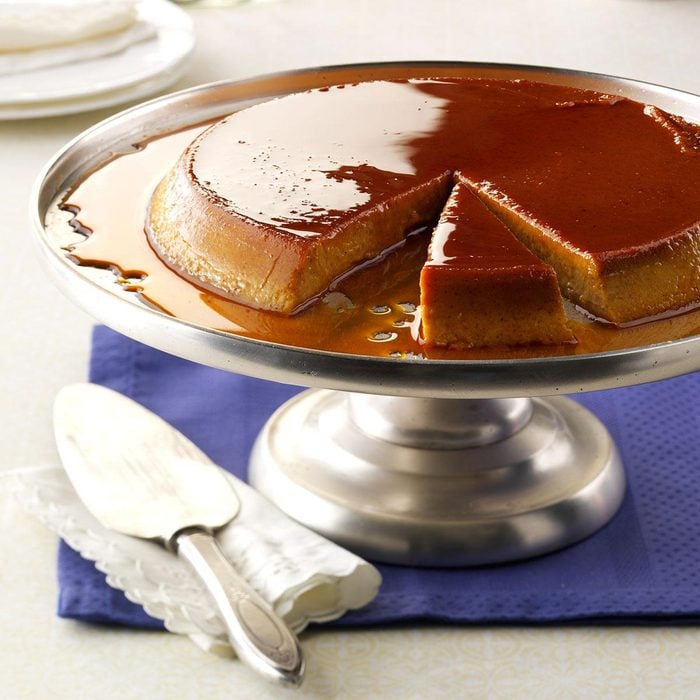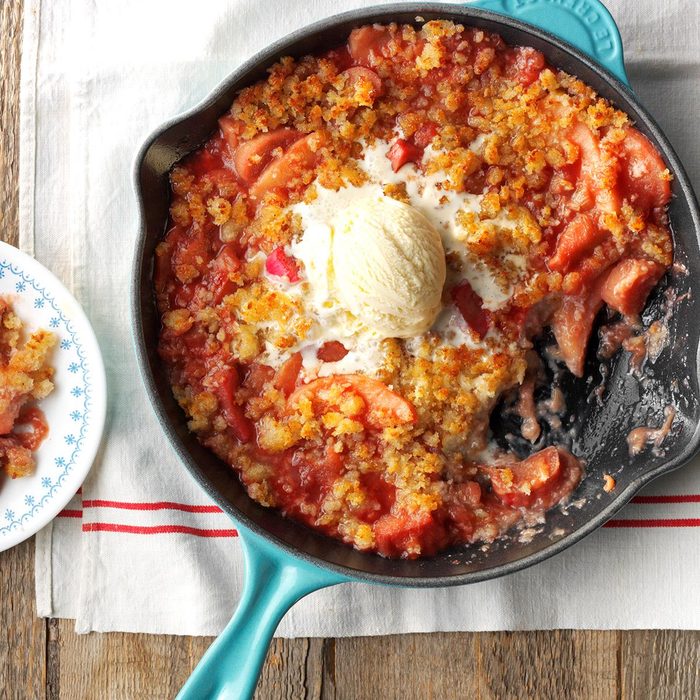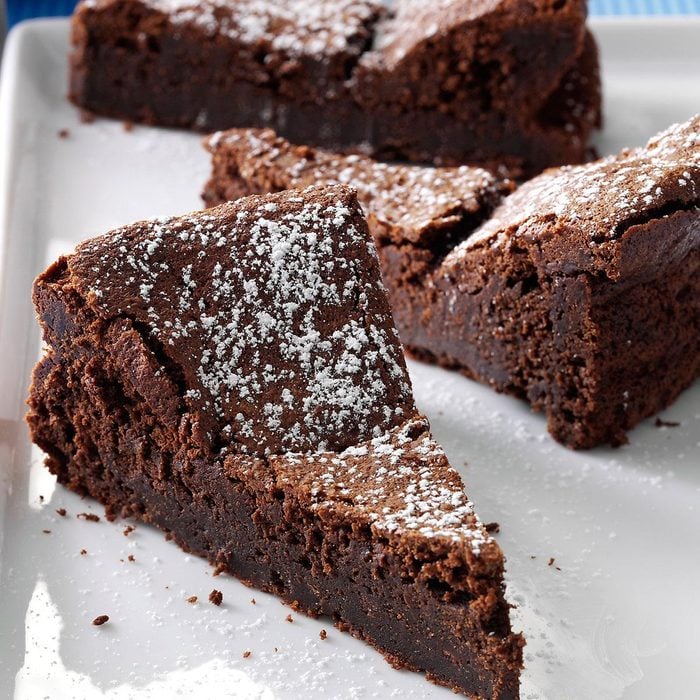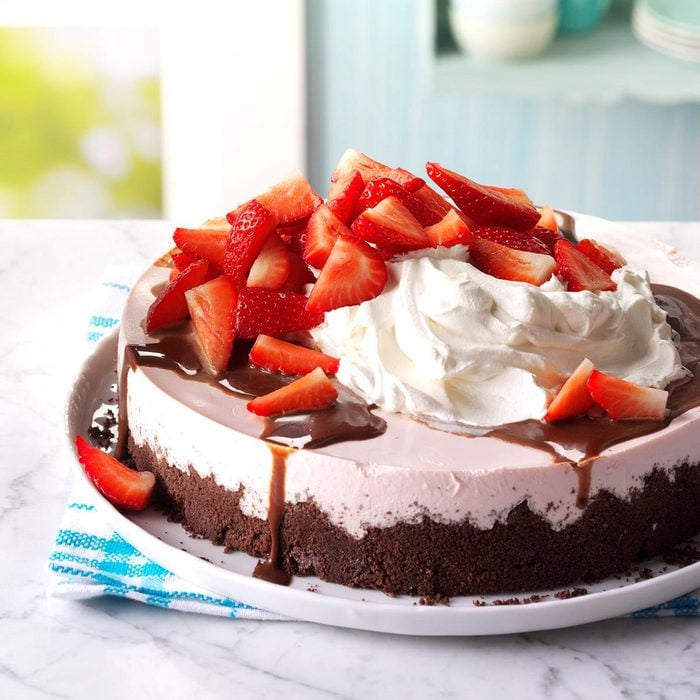Best Sandwich Bread: Basic Homemade BreadIf you'd like to learn how to
bake bread, here's a wonderful place to start. This easy white bread recipe bakes up deliciously golden brown. There's nothing like the homemade aroma wafting through my kitchen as it bakes. —Sandra Anderson, New York, New York
Best Quick Bread: Banana-Zucchini BreadMy grandmother made this
quick bread for as long as I can remember, and I've been making it ever since I learned how to bake. Children love it for a snack, and it's good to serve at any meal. It's another delicious way to use zucchini, which is so abundant in late summer. —Eva Mae Hebert, Lafayette, LA
Best Braided Bread: Honey ChallahI use these shiny beautiful loaves as the centerpiece of my spread. I love the taste of honey, but you can also add chocolate chips, cinnamon, orange zest or almonds. Leftover slices of this sweet challah recipe work well in bread pudding or for French toast. —Jennifer Newfield, Los Angeles, California
Best Rolls: Oat Dinner RollsThese soft rolls are out of this world. The addition of oat makes them a little heartier than other dinner rolls. —Patricia Rutherford, Winchester, Illinois
Best Cinnamon RollsWhen I married him, I discovered that my husband's family has the best cinnamon roll recipe! I asked his mom
how to make homemade cinnamon rolls, and I've been making them ever since. Serve them with scrambled eggs, and you have a filling breakfast. As a variation, you can replace the filling with a mixture of raisins and pecans. —Shenai Fisher, Topeka, Kansas
Best Biscuits: Southern Buttermilk BiscuitsThe recipe for these four-ingredient biscuits has been handed down for many generations. (And don't forget our Test Kitchen's
biscuit tips.) —Fran Thompson, Tarboro, North Carolina
Best Soda Bread: Homemade Irish Soda BreadSome people consider bread to be the most important part of a meal...and this Irish bread satisfies such folks! This recipe is by far the best soda bread I've ever tried. With the addition of raisins, it is moist and delicious! —Evelyn Kenney, Trenton, New Jersey
Best Bagels: Honey BagelsWho has time to make
from-scratch bagels? You do, with this easy recipe! The chewy golden bagels offer a hint of honey and will win over even the pickiest eaters. —Taste of Home Test Kitchen
Best Muffin: Zucchini-Chocolate Chip MuffinsWhenever I make these muffins, I freeze several. As I'm leaving for work in the morning, I pull one out and enjoy it at the office with a cup of coffee. —Janet Pierce DeCori, Rockton, Illinois
Best Corn Bread: Skillet Corn BreadThis skillet corn bread looks like a puffy pancake but has an easy-to-cut texture. It complements everything from chicken to chili. —Kathy Teela, Tucson, Arizona
Best Scones: Hazelnut Chocolate Chip SconesChocolate, hazelnuts and the tangy taste of buttermilk —these delicious scones are easy to make, come together fast, and taste so good with your morning coffee. —Trisha Kruse, Eagle, Idaho
Best Coffee Cake: Cranberry Crumble Coffee CakePeople are delighted to find the ruby cranberry sauce swirled inside this tempting coffee cake. With the crumble topping, moist cake and tangy filling, it won't last long! —Jeani Robinson, Weirton, West Virginia
Best Ever Bread PuddingThe secret to incredible bread pudding with a soft middle and crisp edges starts with leftover dinner rolls. I picked up the rich brown sugar sauce recipe from my friend Kathryn Gartmann. A big drizzle of it takes this dessert over the top and really makes it the best bread pudding ever. —Maria Petrella, Taste of Home Prep Cook
Ultimate Fudgy BrowniesCoffee granules enhance the chocolate flavor in these amazingly
fudgy brownies. Add chocolate chips to the batter (and follow these
brownie tips from our Test Kitchen) and you’ve got some seriously irresistible treats. —Sarah Farmer, Waukesha, Wisconsin
Best Blondies: Skillet Chocolate Chunk Walnut BlondiesPut these beauties out at a potluck and you’ll find only crumbs on your platter when it’s time to head home. Everyone will ask who made those scrumptious blondies, so be sure to bring copies of the recipe! —Peggy Woodward,
Taste of Home Senior Food Editor
Best Cheesecake Bars: Strawberry Rhubarb Cheesecake BarsThese cheesecake bars layer a buttery pecan shortbread crust with a rich and creamy filling and sweet-tart strawberry rhubarb jam. For larger squares, cut into nine bars instead of 16. —Amanda Scarlati, Sandy, Utah
Best Crumb Bars: Sour Cream and Cranberry BarsI turned sour cream raisin pie into a cookie bar with a crunchy oatmeal crust, custard-style filling and crisp topping. —Shelly Bevington, Hermiston, Oregon
The Ultimate Chocolate Chip CookieEveryone has a favorite type of chocolate chip cookie—a little crispy, a little chewy—but they all have to begin with a basic chocolate chip cookie recipe. This is the best place to start! —Megumi Garcia, Milwaukee, Wisconsin
Best Whoopie Pies: Old-Fashioned Whoopie PiesWho can resist soft chocolate sandwich cookies filled with a layer of fluffy white frosting? Mom has made these
whoopie pies for years. They're a treat that never lasts very long with me and my two brothers around. —Maria Costello, Monroe, North Carolina
Best Drop Cookies: Cranberry Pecan CookiesThese are so tasty and simple to prepare! Each delightful little cookie is loaded with cranberries, nuts and vanilla, giving them the taste of a treat that’s been slaved over. —Louise Hawkins, Lubbock, Texas
Best Shortbread: Grandma’s Scottish ShortbreadMy Scottish grandmother was renowned for her baking, and one of the highlights whenever we visited my grandparents was her bringing out the baking tin. Her shortbread cookies were my favorite, and now, whenever I make them, I remember her. This is not a thin, crispy dessert shortbread; it’s a deep bar that is best served with a cup of tea. —Jane Kelly, Wayland, Massachusetts
Best Thumbprint Cookie: Thumbprint Butter CookiesThese buttery little rounds add beautiful color to a platter of treats. Fill the thumbprint in the center with any fruit preserves you like. —Taste of Home Test Kitchen
Best Oatmeal Cookies: Chewy Oatmeal CookiesGet all the details on how to make the best-ever
oatmeal cookies. We won't tell if you skip the raisins and add extra chocolate chips instead!
Best Spritz: Almond Spritz CookiesThis almond spritz cookies recipe can be left plain or decorated with colored sugar and frosting. In our house, it just wouldn't be Christmas without some cookie press recipes.—Tanya Hart, Muncie, Indiana
Best Homemade Slice-and-Bake Cookies: Date-Nut PinwheelsPinwheel cookies with dates and walnuts are a family treasure. There are a few steps when prepping, so I sometimes
freeze the dough and bake the cookies later. —Frieda Whiteley, Lisbon, Connecticut
Best Cutout Cookies: Chocolate Cutout CookiesI love gingerbread cookies, but my grandchildren don't like the ginger flavor. Now I use chocolate and watch them smile as they take that first bite. —Nancy Murphy, Mount Dora, Florida
Best Cream Pie: Easy Coconut Cream PieThis coconut cream pie has been a favorite dessert for decades. I even made several of these pies to serve a threshing crew of 21 men! —Vera Moffitt, Oskaloosa, Kansas
Best Fruit Pie: Maine Blueberry Pie with Crumb ToppingI make this delicious fruit pie with small Maine berries, but you can use any variety you like. The shortbread topping adds a sweet crunch. — Jessie Grearson, Falmouth, Maine
Best Tart: Rustic Caramel Apple TartLike an apple pie without the pan, this scrumptious tart has a crispy
crust that cuts nicely and a yummy caramel topping. —Betty Fulks, Onia, Arkansas
How to Make MeringueLearning how to make meringue will help you master dessert recipes ranging from creamy pies to melt-in-your-mouth macarons.
Best No-Bake Pie: Cookie Butter PieI tasted Biscoff cookie spread at a grocery store one day, and it was so delicious that I decided to create a no-bake pie with it. You can make this pie your own by substituting peanut butter or another kind of spread for the Biscoff spread and then matching toppings. —Katrina Adams, Mount Olive, Alabama
Best Angel Food CakeFor our daughter's wedding, a friend made this lovely, angel food cake from a recipe she's used for decades. It really is one of the best angel food cake recipes I've found. Serve slices plain or dress them up with fresh fruit. And be sure to avoid common
angel food cake mistakes. —Marilyn Niemeyer, Doon, Iowa
Best Pound Cake: Lemon Lover’s Pound CakeEveryone raves about this pretty
lemon pound cake—and it sure doesn't last long with my family. It also freezes beautifully, so why not make two and pop one into the freezer for another day? —Annettia Mounger, Kansas City, Missouri
Best Chiffon Cake: Chocolate Chiffon CakeIf you want to offer family and friends a dessert that really stands out from the rest, this is the cake to make. Beautiful high layers of rich sponge cake are drizzled with a succulent chocolate glaze. —Erma Fox, Memphis, Missouri
Best Sheet Cake: Peanut Butter Sheet CakeI received this recipe from a minister's wife, and my family loves it. —Brenda Jackson, Garden City, Kansas
Best Bundt Cake: Olive Oil CakeA good
olive oil cake isn't overly sweet, so it can just as easily be a breakfast treat or an afternoon snack as a dessert. —Lisa Kaminski, Wauwatosa, Wisconsin
Best Dump Cake: Lemon Berry Dump CakeThis sweet-tart cake recipe is so much fun to make with my grandkids. They love just "dumping it all in" and watching it magically become a pretty, delicious dessert. —Nancy Heishman, Las Vegas, Nevada
Best Upside Down Cake: Strawberry-Rhubarb Upside-Down CakeI prepare this colorful dessert quite often in the late spring or summer when fresh rhubarb is abundant. I make this rhubarb cake with cake mix and take it to church potlucks. People actually line up for a piece. —Bonnie Krogman, Thompson Falls, Montana
Best Layer Cake: Italian Cream Cheese CakeButtermilk makes every bite of this awesome Italian cream cheese cake recipe moist and flavorful. I rely on this recipe year-round.—Joyce Lutz, Centerview, Missouri
Best Shortcake: Lemon-Berry ShortcakeThis simple lemon shortcake is tender and not overly sweet. Enjoy this summertime classic with a generous layer of whipped topping and berries. —Meryl Herr, Overland Park, Kansas
Best Cake Roll: Pumpkin RollThis pumpkin roll recipe is great to keep in the freezer for a quick dessert for my family or unexpected guests, to take to a gathering, or to give as a yummy gift. —Erica Berchtold, Freeport, Illinois
Best Cupcakes: Chocolate Ganache Peanut Butter CupcakesI've been baking cakes for years and enjoy trying new combinations of flavors and textures. For this peanut butter cupcake recipe, I blended peanut butter and chocolate. As soon as I took the first bite, I knew I had created something divine! —Ronda Schabes, Vicksburg, Michigan
Best Custard: Cinnamon-Spiced Pumpkin FlanI love pumpkin and decided to add it to a traditional recipe for flan. It's an interesting change of pace from the usual holiday pie. —Alisha Rodrigues, Tetonia, Idaho
Best Crisp: Cranberry Apple CrispApple cranberry crisp is a wonderful dessert for fall, when both cranberries and apples are in season. The fruits are quite compatible in flavor and color, and they help make any table look festive and inviting. —Martha Sue Stroud, Clarksville, Texas
Best Buckle: Classic Blueberry BuckleThis blueberry buckle recipe came from my grandmother. As children, my sister and I remember going to Pennsylvania for blueberry picking. Mother taught us to pick only perfect berries, and those gems went into this wonderful recipe. —Carol Dolan Mt. Laurel, New Jersey
Best Cobbler: Macaroon-Topped Rhubarb CobblerCrumbled macaroons are a surprising addition to this cobbler’s topping. We love that you can make the sweet treat in a baking dish or a cast-iron skillet.
—Taste of Home Test Kitchen
Best Torte: Flourless Chocolate TorteChocoholics—like me!—know that nothing says chocolate like a
flourless torte. —Kayla Albrecht, Freeport, Illinois
Best Trifle: Pumpkin Mousse TrifleYou can speed up this recipe by using a store-bought pound cake or baking and freezing one ahead of time. The sugared pecans can also be prepared in advance and stored in an airtight container.—Becky McClaflin, Blanchard, Oklahoma
Best Baked Cheesecake: Chocolate Cookie CheesecakeI used to think cheesecake sounded intimidating, but since I started making them I can’t stop! This simple but special cookie-topped version will make your family feel fussed over. —Rose Yoder, Middlebury, Indiana
Best No-Bake Cheesecake: Chocolate-Topped Strawberry CheesecakeCreamy and airy, this gorgeous dessert is the perfect special something for a summer dinner party. I love the mix of smooth strawberry cheesecake and crumbly chocolate crust—and how elegant it looks on the table. —Kathy Berger, Dry Ridge, Kentucky



